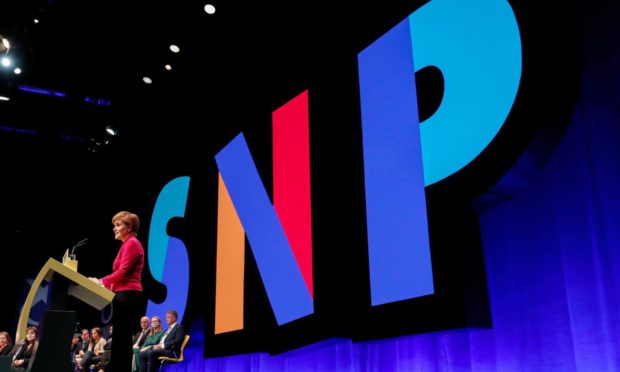There are many words bandied about with such frequency that they have lost the special meaning they were originally intended to convey.
Think “hero” for example, or “unique” or, in showbusiness circles, anyone who has appeared on screen is instantly referred to as a “star”.
The word “crucial” is another applied far too easily to events which are even slightly elevated from the run-of-the-mill, but which can be used with ample justification when considering how the next two weeks could define the future of Nicola Sturgeon, the SNP and, consequently, the course of the independence debate.
I have always shied away from debating party politics because, like football and religion, no one is ever going to change the stance of anyone else, rendering the exercise futile. But having decided to address the SNP’s internal machinations, it is only right that I begin by setting out my own position on the Scottish political landscape so that what follows can be viewed in context.
I have never been aligned to any political party and have always voted according to my own views on which party’s manifesto offers the best mix of ambition and realism at the time of voting. I have voted for different parties at different times. I have also not bothered voting on occasions through apathy and disillusionment.
The prospect of independence doesn’t bother me, although I voted against it in 2014 and will probably do so again in any future referendum, based almost entirely on the devil-you-know philosophy.
It is approaching a whole year since former first minister Alex Salmond was acquitted of 13 sex offences by a jury at the High Court in Edinburgh.
The trial, and the circumstances in which it came about, laid bare deep divisions within the SNP which have bubbled away beneath the surface, but which are now beginning to boil over into open warfare. Mr Salmond and Miss Sturgeon, once staunch allies with a common goal, are now locked in an increasingly bitter battle which threatens to blow apart a party previously seen as immune to the infighting which afflicts their Labour and Conservative rivals.
Senior figures within the party are now lining up behind their chosen one, with Joanna Cherry the first casualty when she was unceremoniously dumped from the SNP front bench in Westminster because of her support for Mr Salmond.
Alex Salmond should have been giving evidence today to the Holyrood committee examining the party’s shambolic handling of the initial complaints against him – a botched inquiry which led to him receiving £500,000 compensation, with taxpayers left to pay at least the same again in legal costs.
He now refuses to do so, citing the inquiry’s refusal to publish his submission that Nicola Sturgeon had lied over when she first became aware of the complaints.
He will, no doubt, air his views on an alternative platform, rather than forfeit entirely his desire to keep up the pressure.
Ms Sturgeon is due to give evidence next week when she will be forensically questioned over whether she did, in fact, mislead parliament.
The question of whether she first became aware on March 29 2018, or, as she originally told parliament, on April 2, might seem relatively insignificant but could result in the inquiry concluding that she breached the ministerial code, a finding that would almost certainly force her to resign.
All of this takes place against a backdrop of growing support for independence, partly driven by the perception that Ms Sturgeon has handled Scotland’s response to Covid-19 far better than the UK Government.
She is forecast to win a huge majority at the forthcoming Holyrood elections in May, which she insists would give her a mandate for a second independence referendum. What remains to be seen, but which may well become clearer over the next two weeks, is to what extent the internal squabbling will drive away the significant number of undecided voters.
There also remains the tantalising suspicion that Mr Salmond has been keeping his powder dry and has more explosive allegations to unleash at the appropriate time.
The Holyrood inquiry is due to report its findings before Scotland goes to the polls on May 6, raising the very real prospect that the SNP might head into the election with a new leader who might not have the same voter appeal as Ms Sturgeon.
How that would affect the outcome is one of the many unknowns in this riveting drama. It all adds up to a fascinating scenario which could ultimately define Scotland’s future. Crucial it is.
Derek Tucker is a former editor of The Press and Journal.
